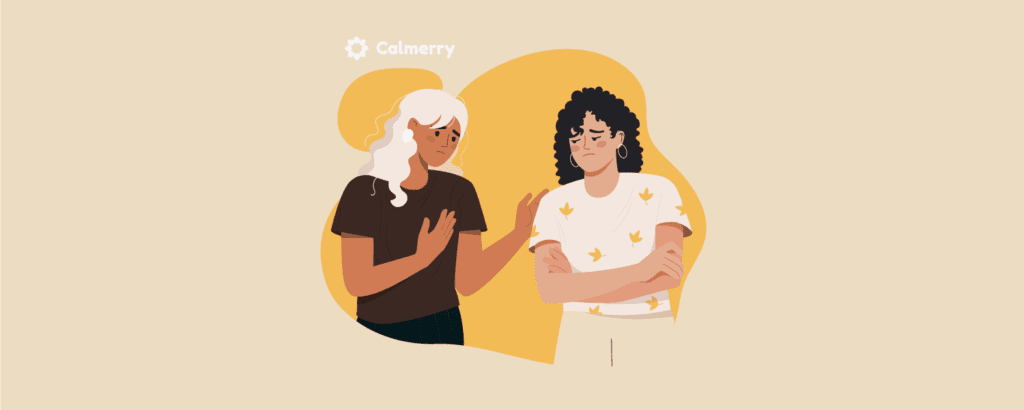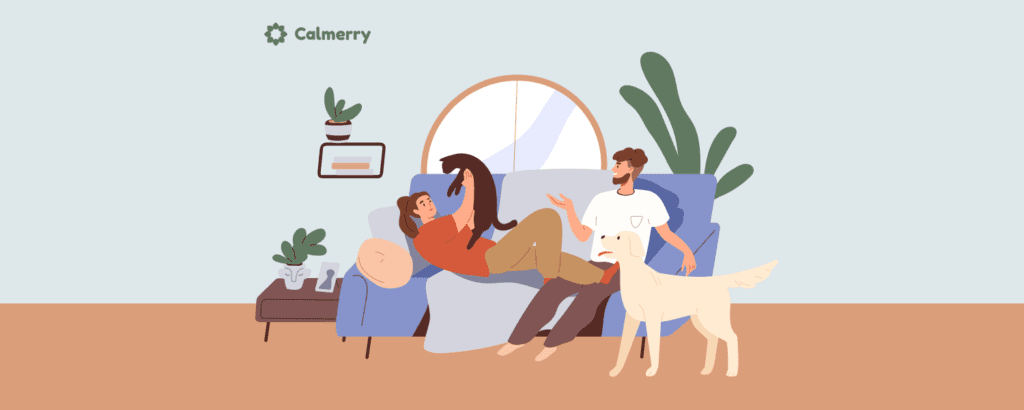People Who Love Animals More Than People: Psychology of Empathy
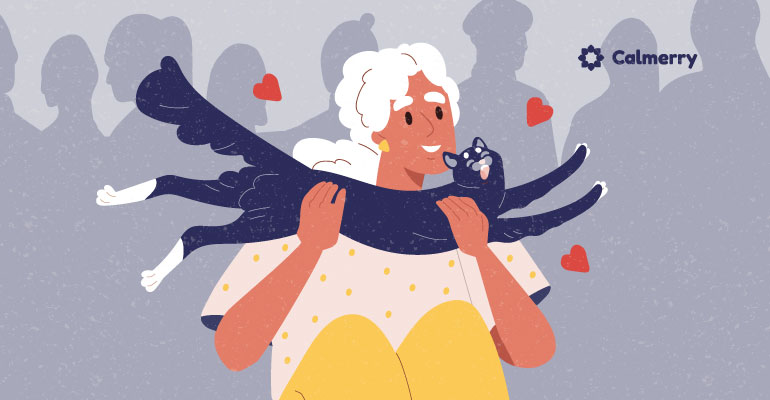
In this article
Most people love animals and treat their pets like valued members of the family. Pets provide companionship, bring joy to our lives, give us affection, and we share our homes, our food, and our lives with them and do everything we can to ensure their well-being and happiness.
Only humans can bond so closely with members of other species and make animals part of their family. Pets are embedded into many human cultures. We give cats and dogs human names, buy them toys and other gifts, dress them up for holidays, talk to them like they’re human beings, and grieve when they die.
Owning a pet is exciting, but it comes with many responsibilities. It isn’t just a time commitment — it’s also a financial one, and it can be costly. So it might seem strange, especially if you consider that care often goes only one way because you can’t really expect your family pet to offer you anything material in return.
So why do we do so?
Why do people love their pets so much?
Pets are kept for pleasure that they could give to their owners, and often, this pleasure is mutual. That is, for example, the case with dogs, cats, and horses. So keeping a pet can be described as a symbiotic relationship that is beneficial for both human beings and animals.
People have been keeping pets since prehistoric times, and pets can be found in nearly all cultures and societies, so apparently, people do it to satisfy a universal human need.
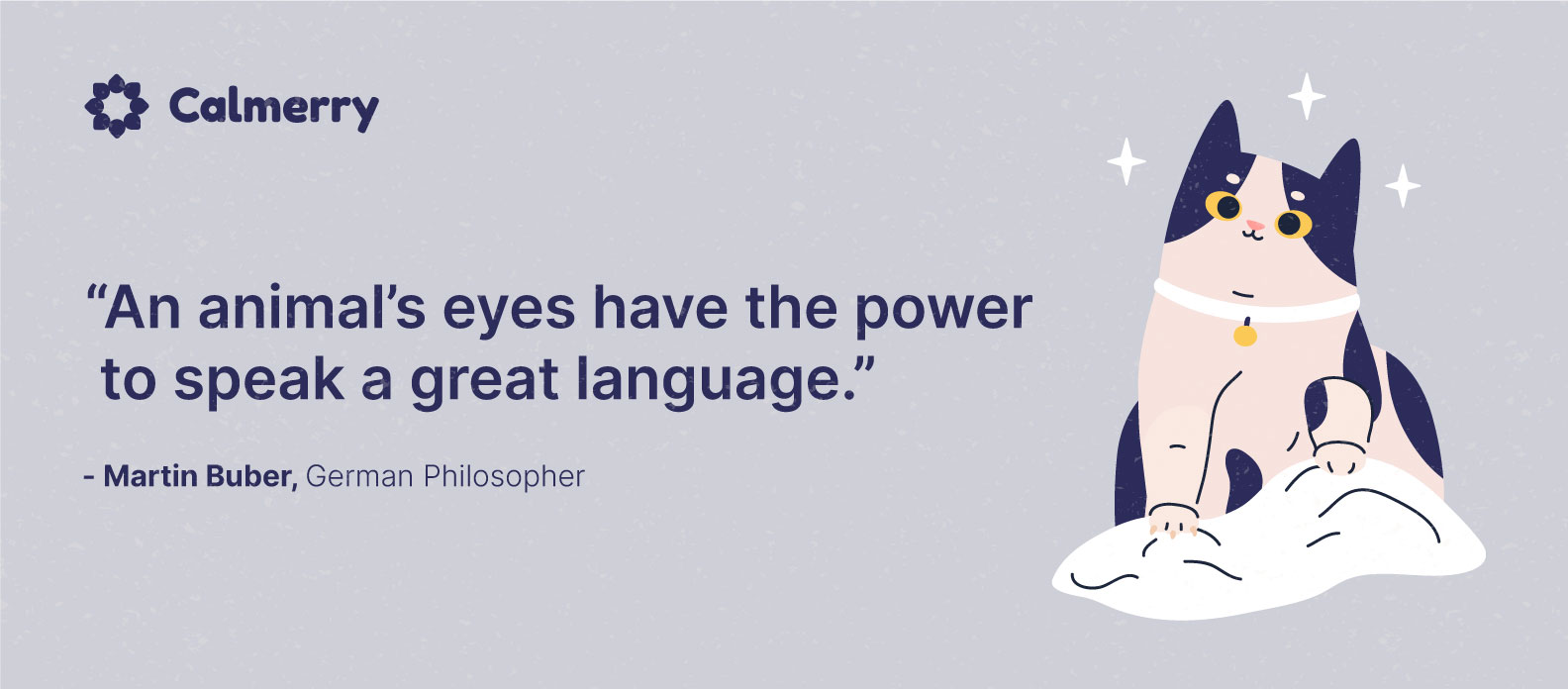
Animal domestication started in prehistoric times, and scientists believe it happened in many places and for different species, although there is some doubt about the precise dating. A study of a dog’s DNA revealed that dogs were the first domesticated animals, and it is likely that the dog was also the first pet.
Some scientists believe dogs may have been domesticated from wolves that came into human settlements to steal food leftovers and began to live alongside people.
Another suggestion is that ancient hunter-gatherers of Paleolithic times captured young wild wolves and used them as hunting companions or guards, gradually taming and training them. With time, people have developed an emotional attachment to dogs and started to take care of them the same way they treated human beings.
Other animals, such as cats and horses, were domesticated later. Cats probably became our pets about 6,000 years ago when people set down to farm. They were useful for controlling mice and rats and gradually became companions. In ancient Egyptian society, cats were worshiped and mummified after death.
The relationships between owners and pets are based on companionship and affection. Pets have an emotional attachment to their owners and other members of the family. They have evolved to be attuned to our emotions and behavior.
Dogs, for example, are able to read their owners’ body language and react to it more quickly than humans can. They change facial expressions when humans pay attention. Dogs can also understand many words and interpret the tone of voice.
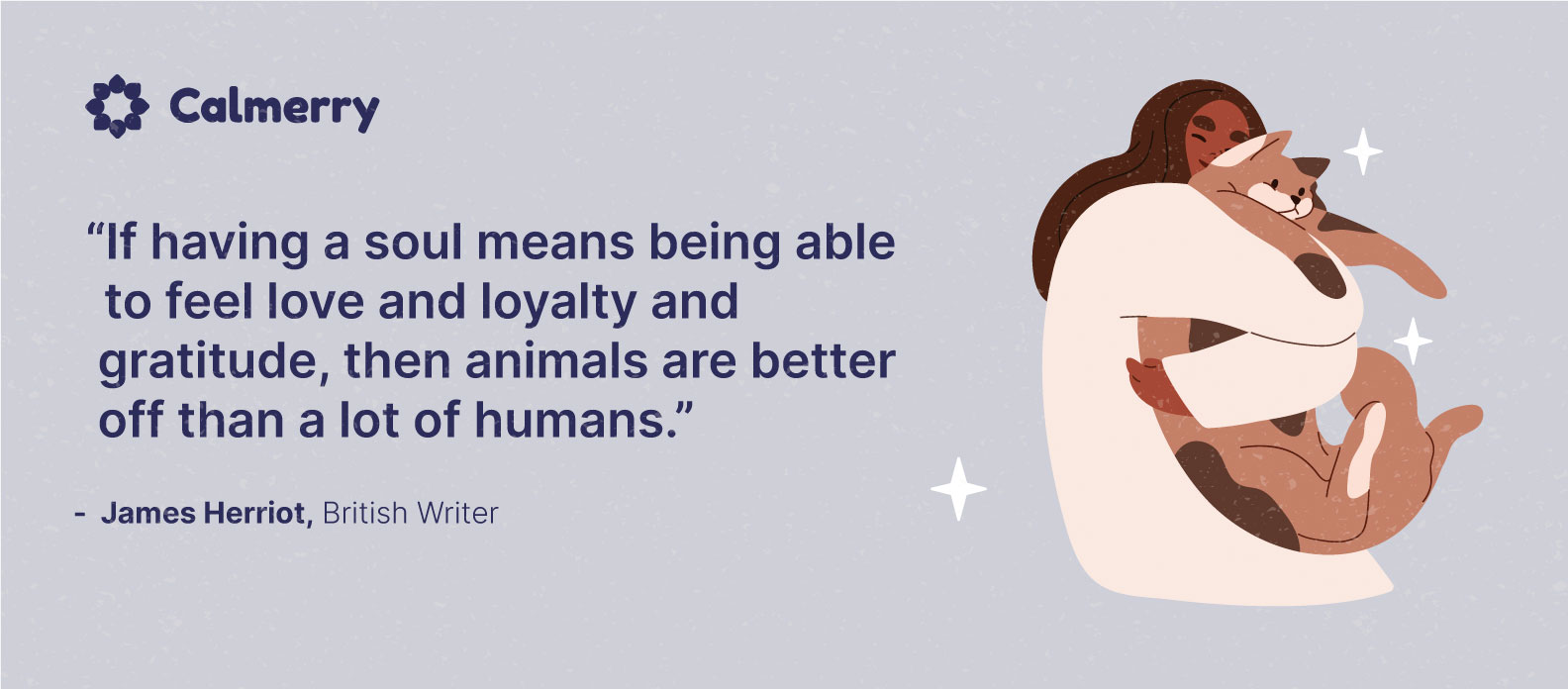
Why do some people prefer animals over humans?
Psychologists explain that our attitude towards animals is influenced by many possible contributing factors, such as socio-cultural norms, religious beliefs, personality traits, and early life experiences. Researchers also suggest that compassion for animals may be linked to genetic differences.
A study revealed that people who love animals have a specific version of the gene that produces the love hormone oxytocin, which is important for empathy between humans and boosts social bonding. So oxytocin helps people bond with animals too, and animal lovers are friendlier people and have more empathy.
Psychologists have established that the affection that you feel towards your child is similar to the one you show towards animals. Pets are entirely dependent on people, so they trigger the same protective instincts as our own kids do. We love animals and want to protect them because we view them as innocent creatures that cannot help themselves when they are in trouble.
We love our pets deeply, and we really want them to be happy. Our love for pets is revolutionary because it represents our closest ties to another species. We do not care about things regarding the species that they belong to.
Instead, we prioritize animals over people because we perceive them as innocent and defenseless and treat them as infants throughout their entire life. While adults are in a position to fight for their rights, animals, and kids cannot do the same. If these feelings of protection and care evoke strong emotions or concerns, you might consider online counseling to discuss and process them.
Kids and animals always look innocent and helpless. Therefore, we feel that they should be protected. You do not use an innate feeling to differentiate one species from another. Instead, you feel like you should nurture them both because of their helplessness.
So it is normal for you to react with rage every time you hear that someone has mistreated an animal. Researchers have also shown that females are usually more empathetic toward animals when compared to their male counterparts.
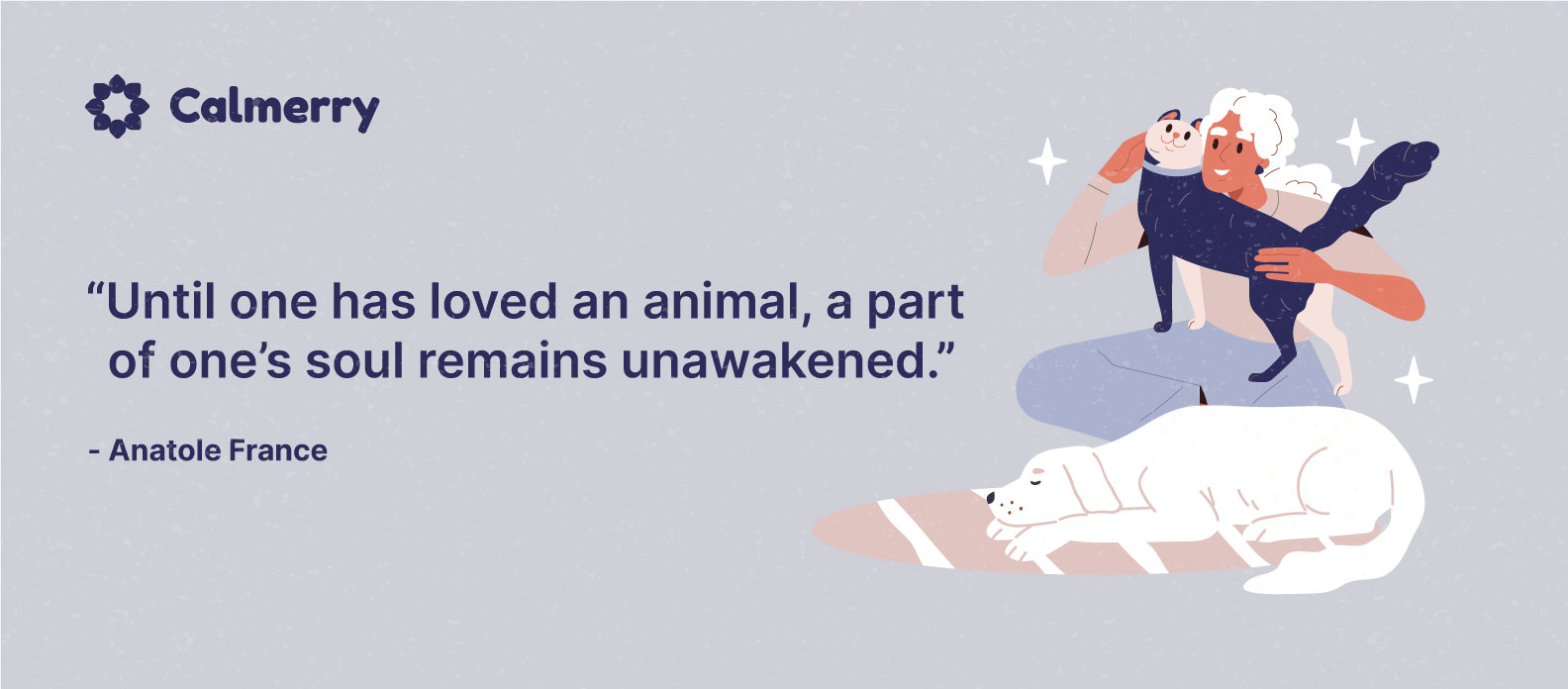
Are there specific benefits of owning a pet?
Sharing your life with a loyal companion animal brings a lot of joy. Their love is absolutely unconditional, and they do more than just keep you company. So what are the benefits of the human-animal bond?
Improve your self-esteem
Humans are sensitive. One negative comment can easily crash their self-perception and make them doubt their self-worth. Pets don’t judge, are quick to forgive, and they are always happy to spend time with you.
When people interact with their pets, they feel positive about themselves, which leads to improved self-perception. The research found that people who have close relationships with their pets have higher self-esteem. Pet owners also are less stressed and feel happier.
Contribute toward your emotional stability
Many people talk to their pets, and it’s absolutely natural. And in addition to being a conversational partner, pets can help you maintain your emotional stability. They fulfill the basic human need for touch and provide emotional comfort by reducing the effects of the things that stress you.
- Pets live in the moment and can teach us to be more mindful. That’s why pet owners are less likely to suffer from depression and anxiety. Moreover, they enjoy life.
- Pets can love you for who you are. They are great listeners and will never criticize you. Their loyalty and positive behaviors make you feel comfortable around them.
- Pets play different roles all at once. In them, you have a reliable friend, the company, and they provide you with emotional support, especially during difficult times. You always feel needed when you are with your pet, and the feeling of acceptance makes you feel better.
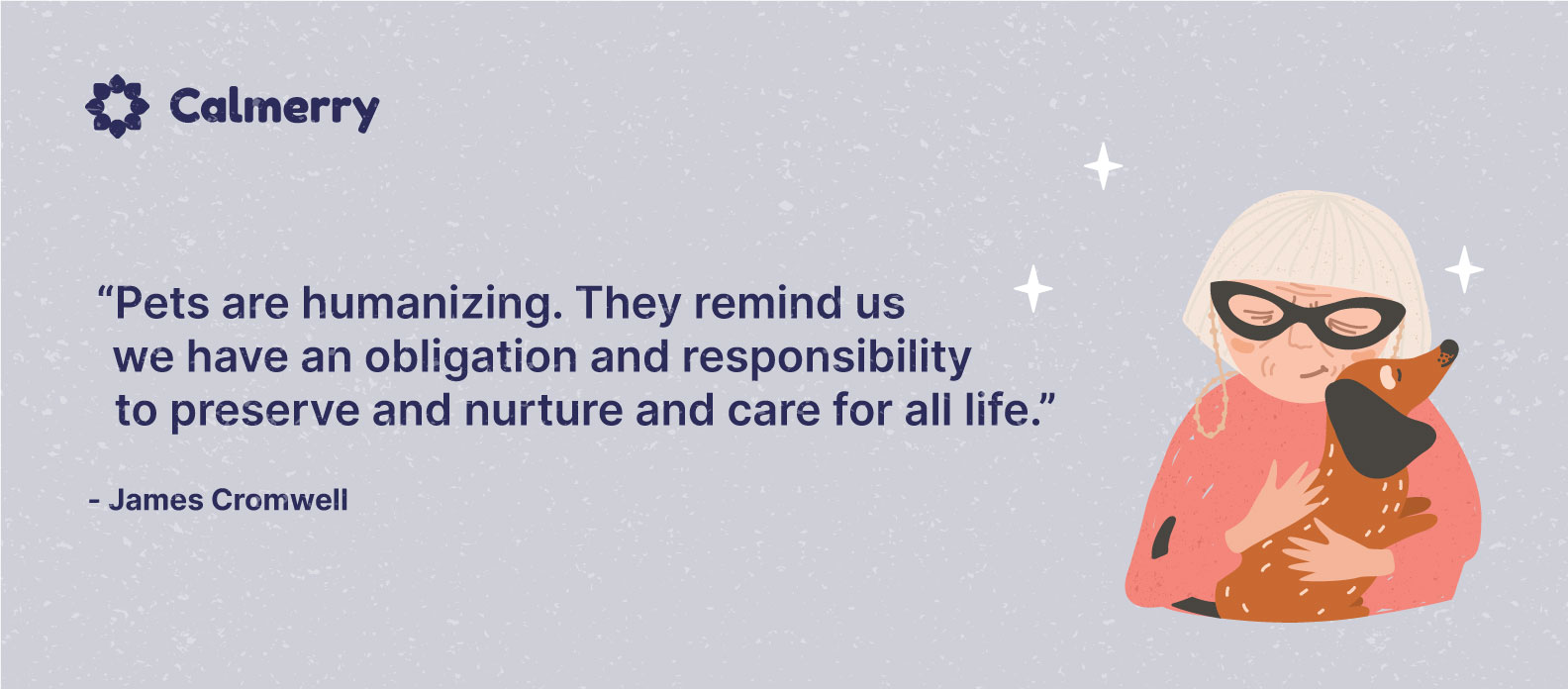
Pets are empathetic
Empathy is the ability to understand the feelings and emotions of others and be compassionate toward them. Humans have empathy toward other humans and animals.
Current research supports the idea that animals are conscious beings. And some of them (dogs, dolphins, primates, and elephants) can experience a range of emotions typically associated with humans, such as fear, compassion, happiness, respect, or joy, and display empathy towards humans and other animals.
Research has shown that dogs can read the emotional state of their owners and respond to it in the same way as a human would. That means that your dog really cares when you are unhappy and wants to help, providing sympathy and comfort.
Help make healthy lifestyle changes
Pets fulfill your emotional needs, but you have to take care of their needs every day as well. Keeping a pet can add structure and routine to your day and help you build healthy habits. You have to set a schedule for feeding, exercising, and grooming your pet and stick to it. That can help you feel more grounded and purposeful.
No matter your mood, you have to care for your pet. Pets motivate us to be active. Taking your dog for a walk or a run helps you increase physical activity and meet your daily exercise requirements.
Help meet new people
Having a dog is great for your social life. Pets provide valuable companionship, so you never feel lonely. But they can also help you connect with other people around you and start new friendships with pet owners in your neighborhood. They help their owners form social connections and find support from other people, which is good for long-term health.
Can it get to a point where you love pets too much?
Just like people have an unhealthy emotional attachment to humans, the same can happen to animals. For instance, you can use your pet as an excuse to isolate yourself from other people.
That may have a negative impact on your physical and mental health and cause some issues in your relationships. Weak social connections and lack of social support can also make you feel depressed. In such a case, you may need to get help from a mental health professional, and online therapy is a good option to consider.
The bottom line
Our relationships with pets are based on emotional attachment, affection, and companionship, so we often think of them as part of our family. Having a pet in your life is a big commitment, but a pet can also be a great source of comfort and motivation.
The human-animal bond is mutually beneficial. We provide pets with care and love, and they bring us unconditional love and acceptance and make us feel good, fulfilling our need for validation. The mental health benefits of owning a pet have been proven by many scientific studies.
We at Calmerry love animals 💙
online therapy
live video session

